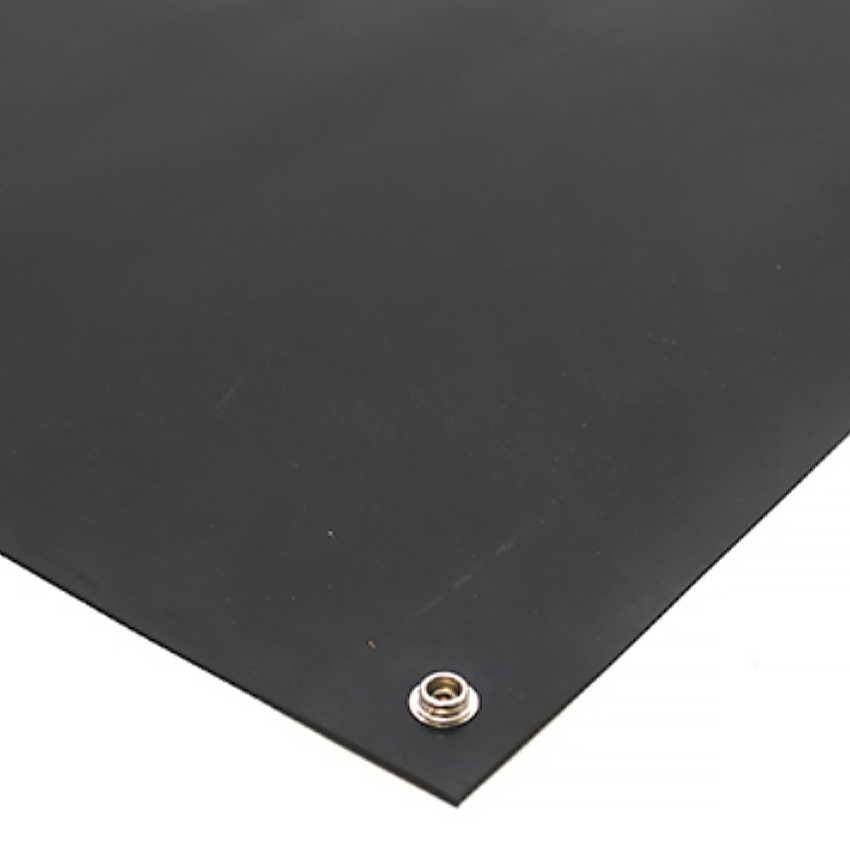






Mat made of ultra-resistant neoprene rubber for high-demand environments. Can be used as an ESD workstation mat or as a floor mat. Resistant to welding sparks and low-reflectance, it is ideal for industries involved in manufacturing or repairing electrical components. In addition to being highly resistant to heat, it also withstands chemicals, oils, fire, and ozone.
Maintenance: Wash with a water jet or high-pressure cleaner using a mild detergent
Easy application, free-standing installation
Suitable for dry indoor environments. Ideal near power stations, transformers, switches, electrical panels, and generators.

| ESD Rubber Floor Mat |
Data sheet
| Format | Roller |
| Surface | Striated |
| Properties | ESD / AS |
| Composition | EPDM rubber |
| Thickness | 2 mm |
| Resistant to chemicals | Yes |
| Environment | Dry environments |
| Operating temperature | -30°C to 80°C |
| Intensity of use | Very intense |
| Wear index | 3/3 (Excellent) |
Industrial mats meet the needs of ergonomic workstations and employee well-being.
They prevent:
There are many uses for industrial mats:
Safety criteria: The mat must cover the entire workstation, be firmly attached to the floor, not shift or slide, and have bevelled edges to prevent falls.
Thickness and flexibility criteria: Contrary to what you might think, you shouldn't choose a very thick or very soft mat. The mat should have a certain elasticity, but still allow a comfortable standing position, without the user feeling slumped.
Environmental criteria :
Environmental hazard criteria : To establish more precise characteristics for a mat (antistatic properties or fire resistance etc...) we need to take into account the hazards present in the environment where the mat will be installed.
Where hazardous liquids are present in the working environment, the anti-slip properties and chemical resistance of industrial mats should be taken into account. The presence of openings on mats to allow the evacuation of fluids is essential.
Traffic criteria: We need to take into account the traffic that takes place on the equipment: how many workers can walk on it? How often, etc., in order to choose the most suitable mat.
Prevent the many problems associated with poor workstation ergonomics: RSI, static shock, bacterial proliferation, etc.
We offer a wide choice of industrial mats: on rolls, in standard sizes, made-to-measure or modular mats to suit all types of workstations.